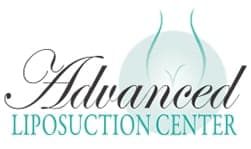Toenail Fungus Treatment
Toenail Fungus Treatment
Laser Toenail Fungus Treatments
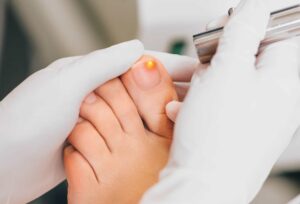
Laser treatments for toenail fungus removal can typically completed within 15 minutes. There is no drugs or anesthesia required for this treatment. Laser treatment is also painless. Additionally, laser treatment is very safe.
Even though laser treatment is effective for killing fungus, a new fungal infection may still develop. People who are genetically predisposed to this disease are very likely to develop a new fungal infection. Patients with aggressive toenail fungus are often required to get periodic treatments. Follow -up with topical antifungals is recommended.
Fake Toenails Toenail Fungus Treatment
Nail Emergency? Important Event? Immediate help is available with Kerynail or LCN nail restoration systems.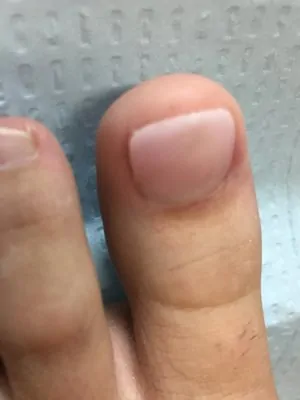
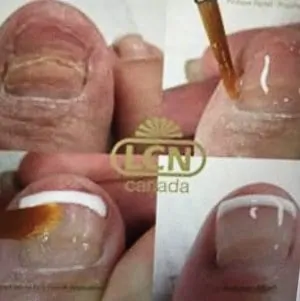
Treatment to NEVER do!
If you hear these, RUN, don’t walk to the nearest exit:
- The best treatments are usually prescription antifungal pills taken by mouth.
- In severe cases, the whole nail may need to be removed.
Oral Antifungal Medications vs Antifungal Creams
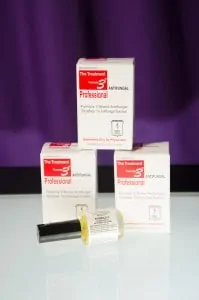
Oral medications are a proven treatment, and have a reasonably high rate of success (about 70%). This class of medication is known for its side effects, however, which include nausea, diarrhea, and skin rashes. Worse yet, these antifungals are very tough on the liver, and in some cases can cause severe damage. This type of treatment isn’t for those with pre-existing liver issues, and will require routine lab work to look at liver function throughout treatment for everyone else. In terms of price, they’re much cheaper than other options, and are usually covered by insurance. Antifungal Creams don’t have those complications.
Nail fungus Definition
Fungal nail infections can cause nails to become discolored, thick, and prone to cracking and breaking. They are more common in the toenails than fingernails. A fungal nail infection is known as an onychomycosis.
Fungus Nail Symptoms:
Symptoms of toenail fungus depends on the type of toenail fungus you have developed, some types share the same symptoms that will help you recognize the problem easily.
Here are some if the main symptoms of toenail fungus:
- You experience bad or foul odour from your toenail
- Toenail is cracked or crumbled
- Your nail is getting thick day by day
- The nail has became misshapen
- Your nail is loose, it may detach from the nail ned
- You are noticing white spots on your nail
If you notice any of these treatments then go to your doctor right away, because ignoring the toenail fungus can lead to infection!
What Are Risk Factors Of Toenail Fungus?
Some rusk factors can make you more likely to develop toenail fungus and here are some of them:
- Living with someone who is suffering from toenail fungus
- If you are already suffering from athlete’s foot
- Unfortunately, if you are a man you are more likely to develop toenail fungus
- People over 40 are more likely to develop this problem
- Injuries on your toenail
- Walking barefoot in areas where bacteria grow, these places can include swimming pool or gyms
- You have a weak immune system or a weak blood circulation
- Wearing old shoes that don’t feet you well.
How To Prevent Toenail Fungus?
- Wash your hands and feet daily with soap and water, after coming back from the work and before eating.
- Always trim your toenail straight across
- Change your shoes and buy the ones that provide a lot of place, also choose moisture wicking shocks, they will absorb away sweat and prevent formation if bacteria
- Don’t share nail clippers, towels or anything with a person with toenail fungus
- Choose your nail salons properly, make sure they clean their equipment’s after every use
- If you develop toenail fungus then seek medical treatment right away.
How does toenail fungus affect people with athlete’s foot?
Toenail fungus and athlete’s foot are both fungal infections that can affect the feet, and they are often related. Here’s how toenail fungus can affect people with athlete’s foot:
- Symptoms: People with athlete’s foot may experience symptoms such as itching, burning, and peeling skin. When the toenails are affected, they may become thickened, discolored, and brittle.
- Complications: Having athlete’s foot can increase the risk of developing toenail fungus. The warm, moist environment created by sweaty feet in shoes provides an ideal breeding ground for fungi to thrive and spread.
- Treatment: Treating athlete’s foot promptly can help prevent the spread of the fungus to the toenails. Over-the-counter antifungal medications are often effective for treating athlete’s foot. However, if the infection spreads to the toenails, treatment may be more challenging and may require prescription medications or other treatments.
- Prevention: To prevent the spread of athlete’s foot to the toenails, it’s important to practice good foot hygiene, such as keeping the feet clean and dry, wearing clean socks and shoes, and avoiding walking barefoot in public areas.
Can toenail fungus be prevented by wearing socks and shoes in public places?
Wearing socks and shoes in public places can help reduce the risk of contracting toenail fungus, but it may not prevent it entirely. Toenail fungus is caused by a fungal infection that thrives in warm, moist environments. Public places such as locker rooms, swimming pools, and communal showers are common areas where the fungus can be contracted.
Wearing socks and shoes in these places can provide a barrier between your feet and the fungus, reducing the likelihood of infection. However, it’s also important to practice good foot hygiene, such as keeping your feet clean and dry, wearing clean socks, and avoiding sharing shoes or socks with others.
Diagnosis of Toenail Fungus by a Podiatrist
Your provider may diagnose a fungal nail infection by looking at the nail and asking questions. They may also take a clipping of the nail for further examination under a microscope. We have a Podiatrist on staff, for appts call 878-313-3338
